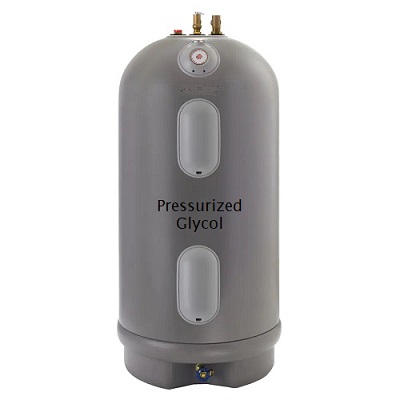Solar Panel Authority Canada
Explaining Pressurized Glycol Solar Hot Water Systems
Hello Everybody!
As homeowners in Canada seek sustainable and energy-efficient solutions, solar domestic hot water systems have gained popularity. One such system is the pressurized glycol solar hot water system, also known as a closed-loop solar hot water system. This innovative technology allows homeowners to utilize the power of the sun to efficiently heat their water supply. In this blog post, we will delve into the world of pressurized glycol solar hot water systems, exploring their operation, benefits, and considerations for installation. Discover how this eco-friendly solution can provide you with cost-effective and renewable domestic hot water for your Canadian household needs.
How Pressurized Glycol Solar Hot Water Systems Work:
Pressurized glycol solar hot water systems employ a closed-loop configuration to maximize heat transfer and efficiency. Here's a brief overview of their operation:
1. Collector: Solar collectors, such as flat-plate or evacuated tube collectors, are installed on a roof or open area with ample sunlight exposure. These collectors absorb solar radiation and convert it into heat.

2. Heat Transfer Fluid: A mixture of water and glycol, typically propylene glycol, acts as the heat transfer fluid. It circulates through the collectors and absorbs the heat generated by solar radiation. The glycol component prevents freezing and protects the system during colder temperatures.
3. Closed-Loop System: The pressurized glycol system operates in a closed-loop configuration. The heat transfer fluid flows through a network of pipes, carrying the captured heat from the collectors to a storage tank. The system is pressurized to ensure proper circulation and prevent boiling at higher temperatures.
4. Heat Exchanger: Inside the storage tank, a heat exchanger facilitates the transfer of heat from the glycol mixture to the domestic water supply. This process efficiently heats (or pre-heats) the water that is in your gas, or electrically heated household water tank.
Benefits of Pressurized Glycol Solar Hot Water Systems:
- Enhanced Efficiency: The closed-loop design and glycol-based heat transfer fluid enable the system to operate efficiently, even in colder climates.
- Freeze Protection: The glycol mixture prevents freezing and safeguards the system components from damage during freezing temperatures. This is a fundamental benefit of this style of domestic hot water heating system in Canada.
- Versatility: Pressurized glycol systems can be utilized for both domestic hot water heating and space heating applications.
- Reduced Energy Costs: By harnessing solar energy, these systems significantly reduce reliance on traditional energy sources to heat your domestic hot water, leading to lower energy bills and decreased environmental impact.
Conclusion:
Pressurized glycol solar hot water systems offer an effective and sustainable solution for Canadian homeowners seeking energy-efficient water heating. By capturing solar radiation and utilizing a closed-loop design with a glycol-based heat transfer fluid, these systems can provide cost-effective and renewable hot water. To ensure optimal performance and longevity, professional installation and periodic maintenance are crucial. Embrace the power of the sun and make a greener choice for your hot water needs with a pressurized glycol solar hot water system.
Cheers!
Katie
- Posted On: July 5, 2023
Send us your feedback:
Recent Blog Entries...
- Net Metering In Ontario-A Guide To Efficient Home Energy
- Comparing Solar Installations Professional Vs DIY
- Why Solar Energy Shines Brighter For Homes Than Geothermal Energy
- The Economics Of DIY Solar Projects In Canada
- Choosing The Right Inverter For DIY Solar
- Installing Solar Panels A Complete DIY Guide


Comments & Replies
Ned Says:
I thought Glycol was not safe to drink, so why do you have it in your water system?
Join the conversation using the form below...